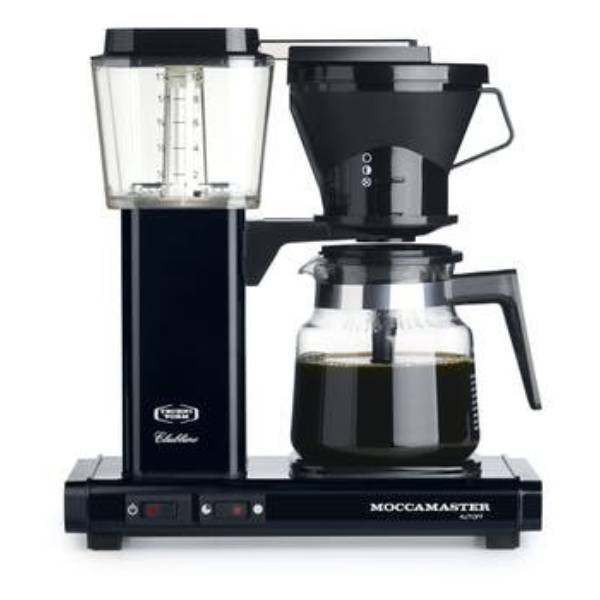Blenders
Blowtorches
Breadmakers
Coffee Grinders
Coffee Makers
Deep fryers & Airfryers
Food Cookers
Food Dehydrators
Food Mixers & Food Processors
Hand Blenders
Hand Mixers
Ice Cream Makers
Ice Makers
Juicers
Kettles
Kitchen Scales
Meat Slicers
Mincers
Mini Choppers & Spiralisers
Other Kitchen Appliances
Pasta Makers
Popcorn Makers
Sandwich Toasters
Soft Drink Makers
Toasters
Vacuum Sealers
Waffle Makers
USB-A Mobile Modems
Try flexible payments withLearn how
32 products

HP 4G LTE-AP WWAN

Huawei E8377 4G Travel In-Car Portable Wi-Fi Hotspot


Lenovo Quectel EM05-CE

Sxhlseller 4G LTE USB Wifi Modem with SIM Card Slot

Jojomino MiFi Pocket 4G WiFi Router 150Mbps
Wi-Fi

Zte MF833 CAT4/4G USB Dongle Unlocked Low Cost Travel


Lenovo ThinkPad Fibocom L850-GL CAT9 WWAN
Mobile Modems: 3 things to consider before buying
When choosing mobile modems, it's crucial to consider your connectivity needs. If you frequently travel or live in areas with spotty network coverage, a modem that supports multiple bands and technologies like 4G LTE or 5G is essential. For example, if you often find yourself in rural locations, a modem with strong signal reception capabilities will ensure you stay connected. Assess whether you'll be using the modem primarily for browsing, streaming, or heavy data tasks, as this will guide your selection towards models with suitable speed and bandwidth capabilities.
Portability can make a significant difference in how you use mobile modems. If you're constantly on the move, look for compact and lightweight models that easily fit into a bag or pocket. Consider the design features such as built-in antennas versus external ones; built-in options offer sleekness and ease of transport, while external antennas might provide better performance in certain scenarios. Additionally, check the battery life if you plan to use it without a power source for extended periods.
Ensuring compatibility between mobile modems and your devices is vital for seamless operation. Verify that the modem supports the operating systems of your devices, such as Windows, macOS, iOS, or Android. Some modems offer plug-and-play functionality via USB ports, while others may require specific drivers or software installation. If you intend to connect multiple devices simultaneously, opt for models that support Wi-Fi tethering to share internet access effortlessly across laptops, tablets, and smartphones.
FAQ
Mobile modems are devices that connect your computer or network to the internet using a mobile network. They are essential for accessing the internet on-the-go, especially in areas without Wi-Fi. Mobile modems come in various types, including USB sticks, portable hotspots, and built-in options for laptops.
Mobile modems work by converting mobile network signals into internet connectivity for your device. They use SIM cards to access data plans from mobile carriers, allowing you to browse the web, stream videos, and download files wherever there is mobile coverage.
When buying a mobile modem, consider compatibility with your carrier's network, speed capabilities, battery life (for portable models), and the number of devices it can support. Also, check if it supports the latest network technologies like 4G or 5G for faster connections.
Mobile modems are generally secure if you follow best practices. Ensure your modem has updated firmware and uses encryption protocols like WPA2 or WPA3. Avoid using public networks without VPN protection and regularly change passwords to maintain security.
You can use a mobile modem abroad if it supports international roaming and is unlocked for multiple networks. Check with your carrier about international data plans to avoid high charges. Some modems allow you to insert local SIM cards for better rates while traveling.
Advertisement
Popular searches in Mobile Modems
- 5g sim router
- Mifi
- 5g mobile hotspot
- 5g modem router
- Modem sim
- 4g dongle
- 4g usb dongle
- 5G Mobile Modems
- Cheap Mobile Modems
- Battery Mobile Modems
- Wi-Fi 6 (802.11ax) Mobile Modems
- TP-Link Battery Mobile Modems
- Mobile Modems on sale
- 4G Mobile Modems
- Black Mobile Modems
- Zte Mobile Modems
- Huawei Mobile Modems
- Battery - Wi-Fi Mobile Modems
- 5G - USB-C Mobile Modems
- Wi-Fi 4 (802.11n) Mobile Modems
- White Mobile Modems
- M.2 Mobile Modems
- Mains Mobile Modems
- Memory Card Reader Mobile Modems
- RJ45 (LAN) Mobile Modems
- Micro-USB Mobile Modems
- MicroSD Mobile Modems

































